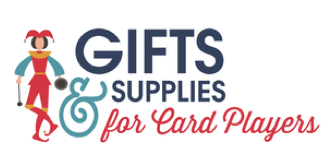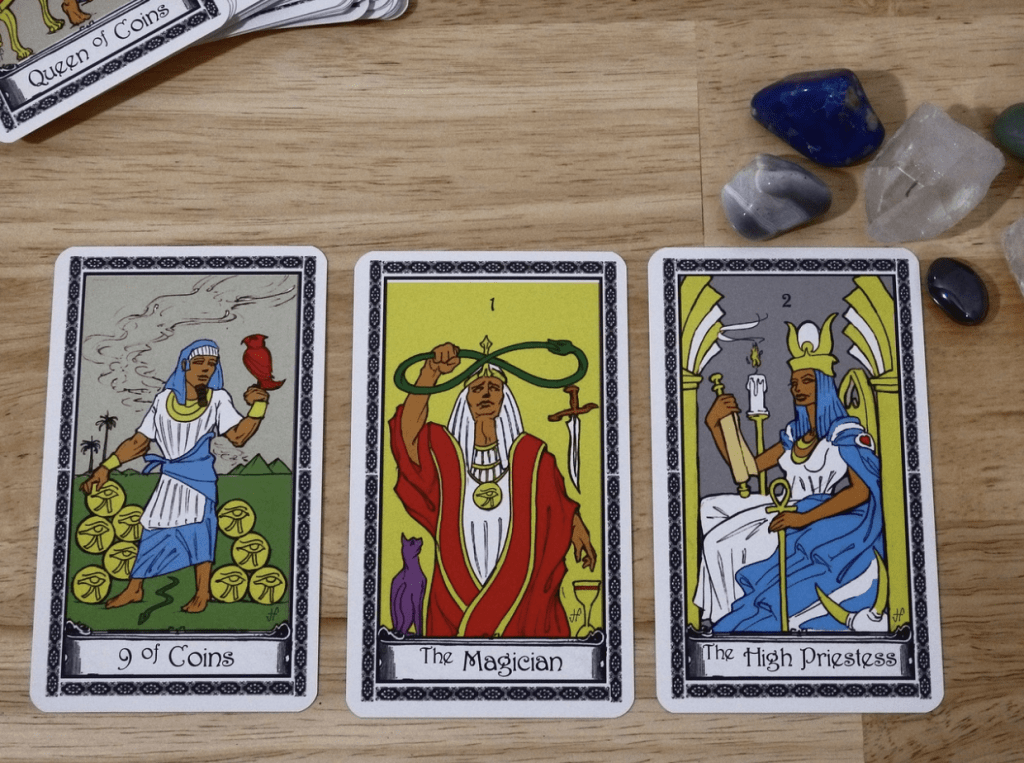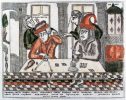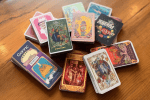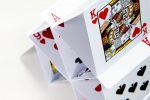Misconceptions About Tarot Cards: Separating Fact From Fiction
Tarot cards have long mystified people with their imagery and symbolism. However, tarot misconceptions have often led to confusion and skepticism.
In this article, we debunk common misconceptions and shed light on the true nature of tarot cards. We will help you better perceive this ancient divination tool more accurately.
Common Misconceptions About Tarot Cards
Various misconceptions surrounding tarot cards can cloud people’s understanding of their use. It’s important to separate fact from fiction to better understand tarot. Here are some common myths about tarot cards:
- Tarot cards predict the future. Tarot cards do not have the power to predict the future with absolute certainty. They offer guidance based on the energies and circumstances present during the reading. We should remember that the future is not set in stone and can be influenced by our choices and actions.
Are you looking for effective readings to help you navigate life? The Relationship Psychics Yes/No Tarot reading will offer you the guidance you need in life, career, and relationships. - Tarot cards are 100% accurate. Tarot cards are interpretations based on symbolism, intuition, and the understanding of the tarot readers. While tarot can provide valuable insights, reading accuracy depends on factors like the reader’s skill, the questions asked, and your interpretation of the guidance given.
- Tarot cards are liked to evil or the occult. Tarot cards themselves are not inherently linked to evil or the occult. They can be used for self-reflection, guidance, and personal growth. The association of tarot with negative connotations results from misunderstandings over time.
- Only special individuals can read tarot cards. While some people have a natural inclination or talent for reading tarot cards, anyone can learn to read them with dedication and practice and be a tarot reader. Tarot reading is a skill that can be developed by studying the cards, understanding their symbolism, and cultivating intuition.
- Tarot readings are fixed and unchangeable. Tarot readings offer insights into current energies and potential outcomes based on the circumstances during the reading. However, the future is not predetermined; your choices and actions can influence events. Tarot only serves as a guide to empower you to make informed decisions and navigate your path.
- Tarot cards hold magic powers. Tarot cards themselves do not possess inherent magic powers. The power lies in the interpretation and the insights gained through the cards. Tarot can tap into your own intuition and subconscious mind, helping you access deeper understanding and self-awareness.
- Tarot cards and playing cards are the same. While tarot and playing cards have a similar appearance, they serve different purposes. Tarot cards are used for divination and self-reflection while playing cards are used for card games.
Why Do People Have A Lot Of Misconceptions About Tarot Cards
While tarot cards are known for having a long and fascinating history, they continue to be heavily misunderstood by people. There are varied reasons why people have misconceptions about tarot cards. They are as follows:
- Pop culture portrayal. Tarot cards have been depicted in movies, shows, and books in varied ways, often inaccurately. These depictions of this fascinating practice can create misconceptions about its use and purpose.
- Lack of understanding. Many people must familiarize themselves with tarot cards’ history and intended purpose. This lack of knowledge can lead to misconceptions and assumptions about their nature and how to use them.
- Superstition and fear. Tarot cards are sometimes associated with occult practices. This association leads to misconceptions about tarot decks and tarot card readings.
- Misinterpretation. A tarot deck is often misunderstood as a fortune-telling tool. Tarot cards are seen as an effective tool in gaining insights and guidance about a person’s life instead of being a tool for seeing what the future holds.
- Skepticism. Some people are skeptical of tarot cards and view them as mere coincidence. While tarot readings can involve an element of interpretation and subjectivity, many people find value and meaning in the symbolism and message conveyed by cards.
Final Thoughts
It is important to approach tarot with an open mind, understanding that it is a tool for self-reflection, guidance, and personal exploration. These readings are a way to gain insights and perspectives instead of definitive answers. You must develop your understanding and connection with the cards to enhance the benefits you derive from the reading.
